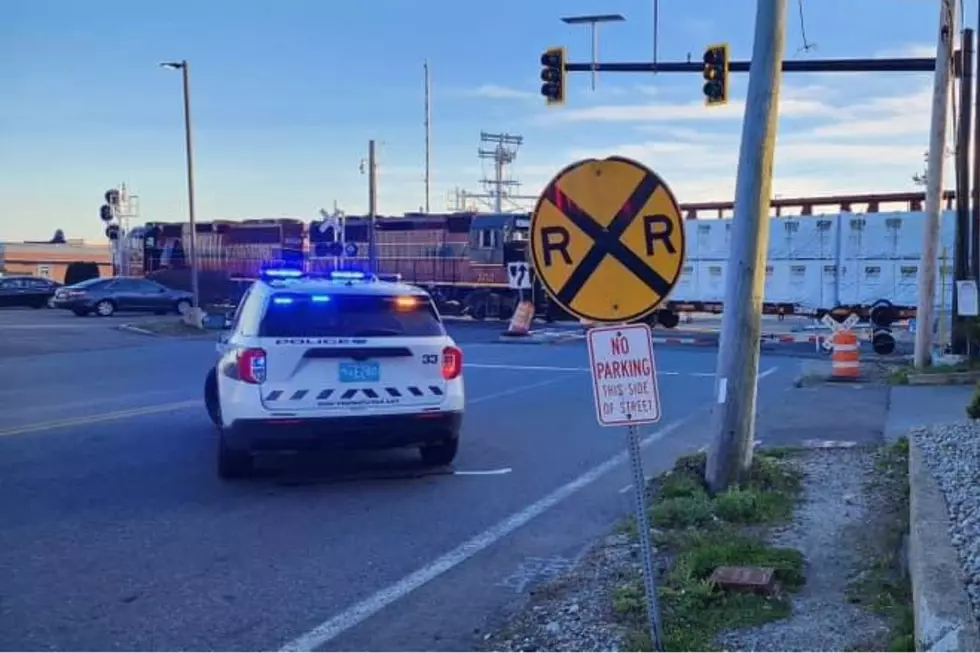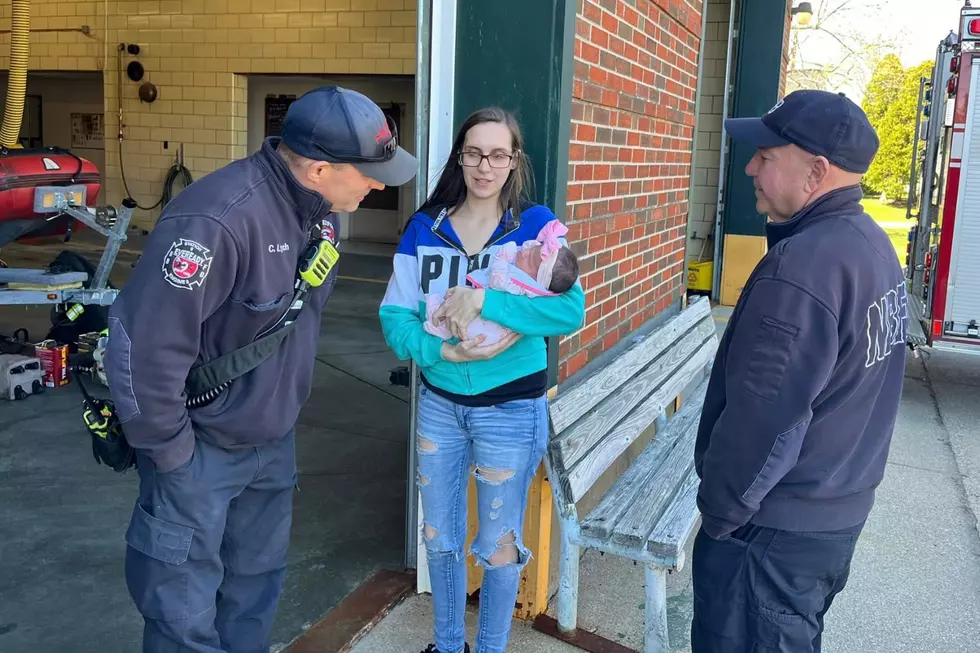
Site, Supply Struggles Complicate Baker’s Vaccine Push
Older Massachusetts residents are struggling to secure COVID-19 vaccination appointments through a state-run website, prompting Gov. Charlie Baker to urge patience and caution that demand for the immunization still outpaces supply.

At his Wednesday news conference, Gov. Charlie Baker said it will take time to get vaccines to everyone who qualifies and that Massachusetts residents "need to be patient" about making an appointment. [Sam Doran/SHNS]
A day after Baker pointed adults 75 and over toward the state's vaccine map website to book vaccines that will soon become available, several lawmakers in that age range slammed the system as confusing and "ineffective."
Both the Boston Globe and WBUR reported numerous accounts of older residents who could not navigate the website or waited hours only to find that all slots were already full.
During a press conference where he also cautioned that specific details about expanded federal shipments are still unknown, Baker said it will take time to get vaccines to everyone who qualifies.
"We expect that by the start of Phase 2, there will be a large number of residents trying to secure a limited number of appointments," Baker said. "If you can't secure an appointment right away, you need to be patient about that. We understand the difficulty that's attached to that, but keep checking the website and going back to check again on the sites that make the most sense to you. More and more time slots will be added on a rolling basis as we get additional supply."
The second phase of the administration's vaccine rollout plan will begin next week, making doses available to residents 75 and older to start.
In his State of the Commonwealth address Tuesday night, Baker said residents could start using the state's website -- mass.gov/covidvaccine -- to check their eligibility and book appointments for vaccines.
Senate President Emerita Harriette Chandler, who is 84, and Sen. Patricia Jehlen, who is 77, tweeted nearly identical messages Wednesday that they "personally struggled" to use the vaccination website now that they both are set to become eligible.
"My office has heard from dozens of frustrated constituents, and I expect that is only the tip of the iceberg," Chandler said in her tweet. "We are trying our best to help, but this website is simply ineffective."
Baker said Wednesday that it is "hard for us to answer" specific questions about issues with the website. He urged younger residents to help their older friends and family navigate any technological hurdles while hinting that the administration "is working to create additional resources" to make appointments.
Asked why New Hampshire runs a single centralized online system for vaccines but Massachusetts does not and whether the difference in populations is a factor, Baker replied, "I don't know, but I will see if we can get an answer to that question."
He added that there are more than 1 million Massachusetts residents over the age of 75 who will gain eligibility to receive vaccines starting Monday, meaning the single group that will kick off Phase 2 outnumbers the state's entire vaccine haul so far.
"We've gotten less than a million doses since this thing started in December. We've had more than a million hits on the state's website since this was announced on Tuesday," Baker said. "If you have a million people who are eligible and you have only received a million doses since this all began in December, you are going to be constrained by supply."
Federal officials plan to boost the amount of vaccines distributed to states, territories and tribes by roughly 17 percent for the next three weeks, up to a minimum of 10 million doses per week in that span.
However, according to Baker, the Biden administration stressed during a Tuesday call with governors that the additional supply might vary by state.
"The conversation we had with the administration was about a national number, but they said we should be careful about projecting that national adjustment to our own states," Baker said, referencing the call organized by the National Governors Association. "We haven't heard officially what that will mean for Massachusetts."
"I'm hoping by tomorrow, certainly by Friday, we'll know what the answer to that is," Baker added. "I heard the same 17 percent number, but they made very clear to us: don't just assume that means you're going to get 17 percent (more) of what you have."
One day after the NGA call, the Biden administration's COVID-19 Task Force held its first public briefing Wednesday to discuss the status of the virus, concerns about new variants and steps that were being taken to increase vaccine supply.
"I know that many American are anxious and eager to get vaccinated. I want you to know we're taking this issue on with incredible urgency and purpose, despite not inheriting a fully-developed strategy or the infrastructure to make vaccines readily available to Americans as quickly as they need to be," said Andy Slavitt, senior advisor to White House COVID-19 Response Team.
Slavitt said the federal government is no longer holding back any supply for second doses, shipping doses to states as they become available and holding only a two- to three-day supply to smooth out any manufacturing variations.
"Any stockpile that may have existed previously no longer exists," Slavitt said. He added, "We are passing doses directly on to states very much in real time as they order them."
President Joe Biden has set a goal of administering at least 100 million doses of COVID-19 vaccine in his first 100 days, and officials said they are currently on pace to meet that goal.
In Massachusetts, state officials plan to increase the number of open public vaccination sites to 103 this week, which could administer 242,000 doses per week. By mid-February, the capacity should rise to 305,000, officials said.
So far, the state has only been receiving about 80,000 doses per week, and Baker said Wednesday that it "won't be very long from now" until the state's capacity to administer the vaccine reliably outstrips its supply.
In another part of the Biden administration's plan, the U.S. agreed to purchase an additional 200 million doses this year from Pfizer and Moderna, which Slavitt said will ensure enough supply to vaccinate everyone over the age of 16, but those doses are not expected until the summer.
Slavitt also called on Congress to pass the president's $1.9 trillion American Rescue Plan, which includes funding for vaccination sites, and said the administration was exploring all options to use the Defense Production Act to boost vaccine manufacturing.
"Even so, it will be months before everyone who wants a vaccine will be able to get one," he said.
Officials said the Federal Emergency Management Agency had obligated $1 billion to support vaccination sites, and Pfizer and Moderna are committed to delivering 200 million doses by the end of March, with much of it getting delivered at the end of the first quarter.
--Chris Lisinski and Matt Murphy/SHNS

More From WBSM-AM/AM 1420









